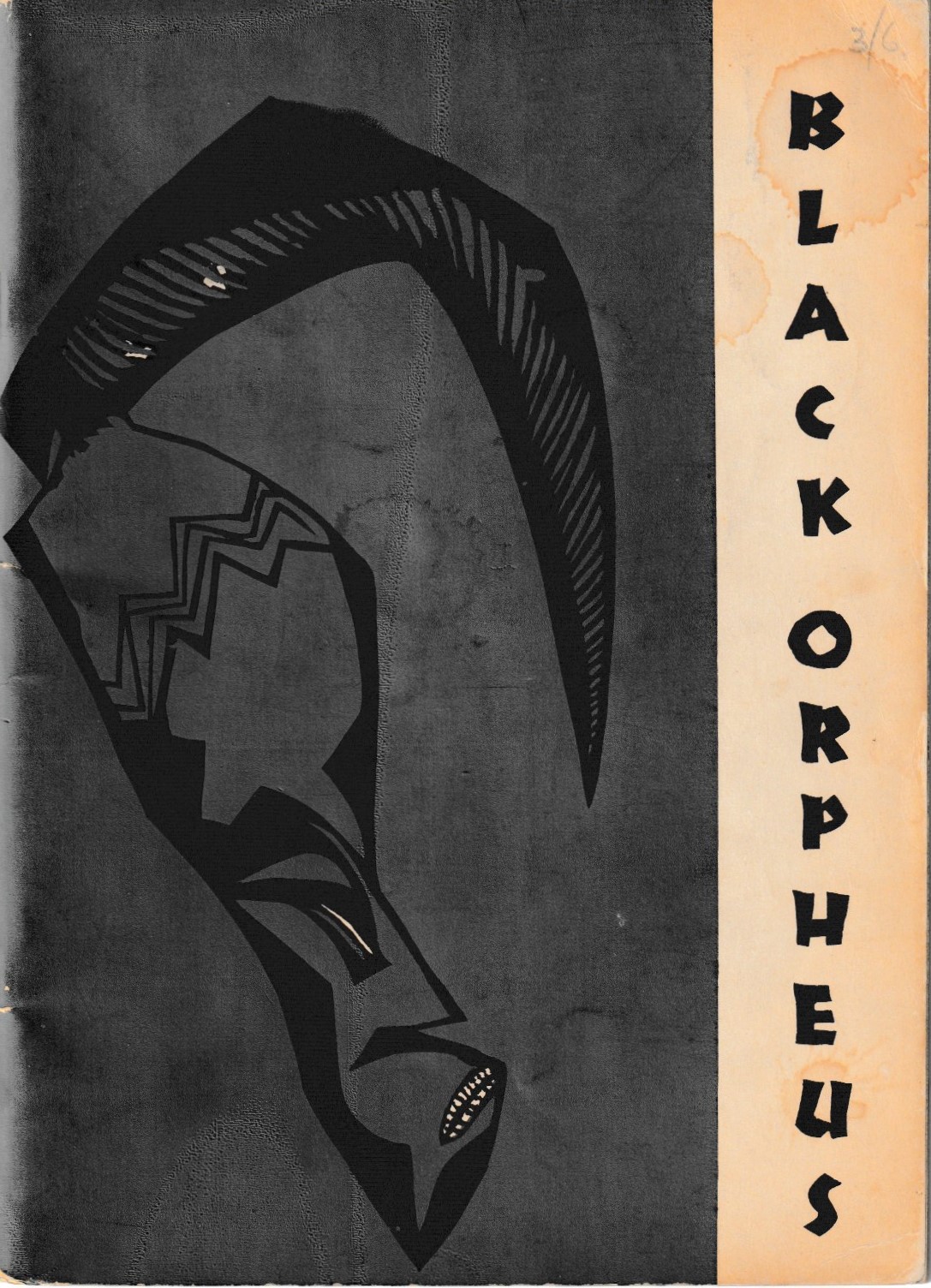
OlongoAfrica returns to Black Orpheus Journal
August, 2024
OlongoAfrica.com presents a year-long project to explore the legacy of the Black Orpheus journal on literature and culture documentation around the African continent.






The Black Orpheus Journal of African and Afro-American Literature was first published between 1957 and 1975. It was founded by Ulli Beier, a German-Jewish expatriate whose work in the arts in the late fifties Nigeria helped bridge a crucial gap between Francophone, Anglophone, and Afro-American literatures. His network and friendship with sculptors, painters, writers, artists and other numerous influential cultural figures in Ìbàdàn, Òṣogbo, Nsukka, and other places, helped facilitate a number of eventful art movements in the late fifties to early seventies.
First published by the Ministry of Education in Western Nigerian (then based in Ìbàdàn), the Journal moved to Mbari Club, a culture-arts establishment founded by Beier, Achebe, Ṣóyínká, and others. Then later, it was published by a number of other organisations including Longman publishers, before Beier left Ìbàdàn for Papua New Guinea where he founded the Kovave Journal — the first English language journal of literature in that country. Black Orpheus was taken over by JP Clark and Abíọ́lá Ìrèlé and renamed Black Orpheus: A Journal of the Arts from Africa. In the intervening years, it was edited by a number of Nigerian writers like Theo Vincent and Hope Eghagha and moved around eventually to the University of Lagos, where it became just Black Orpheus: A Journal of the Arts in Africa.
The art and literary corpus of Black Orpheus have become the subject of intense scholarly interest around the world today. Two notable exhibitions around Mbari and the Black Orpheus movement are Into the Night which was held at the Barbican in London in October 2019, focused on the Mbari Club and its role as a refuge for artists and rebels from across the world; and Jacob Lawrence and the Mbari Club, which was held at the Chrysler Museum in Virginia in September 2022, and focused on the work of Lawrence. There has not been a similar work focused on the African continent, aimed at showcasing the local contributors and the impact of the publication on the development of African literature and the arts in world imagination, until now.
OlongoAfrica’s Black Orpheus documentation project will, in collaboration with curators, writers, artists, publishers, and archivists, examine what the Black Orpheus publication meant and means for contemporary African writing and art production. This will include a digitization of the Black Orpheus archive and the creation of a metadata to benefit researchers, a short residency of selected artists, writers/researchers at a location to be determined — to explore the archive and create derivative work in their field for the benefit of contemporary scholarship, a public and online exhibition of both the original Black Orpheus publications and the digitized archive, including conversations with surviving members of the Mbari/Black Orpheus school of art and writing, and eventually, a resuscitation of a new Black Orpheus journal edited by a rotation of editors — a place for publishing new writings, art, and translations.
The project is supported by Open Society Foundations, with collaborators including Masobe Books, Institute of African Studies, Univerisity of Ibadan, Brick House Cooperative, Guest Artists Space Foundation, Angels & Muse, African Poetry Book Funds, Lagos International Poetry Festival, New York Black and African Literature Festival, Archivi.ng, The US Consulate, ART X Lagos, Google Arts & Culture, and others to be named.
More details soon.
